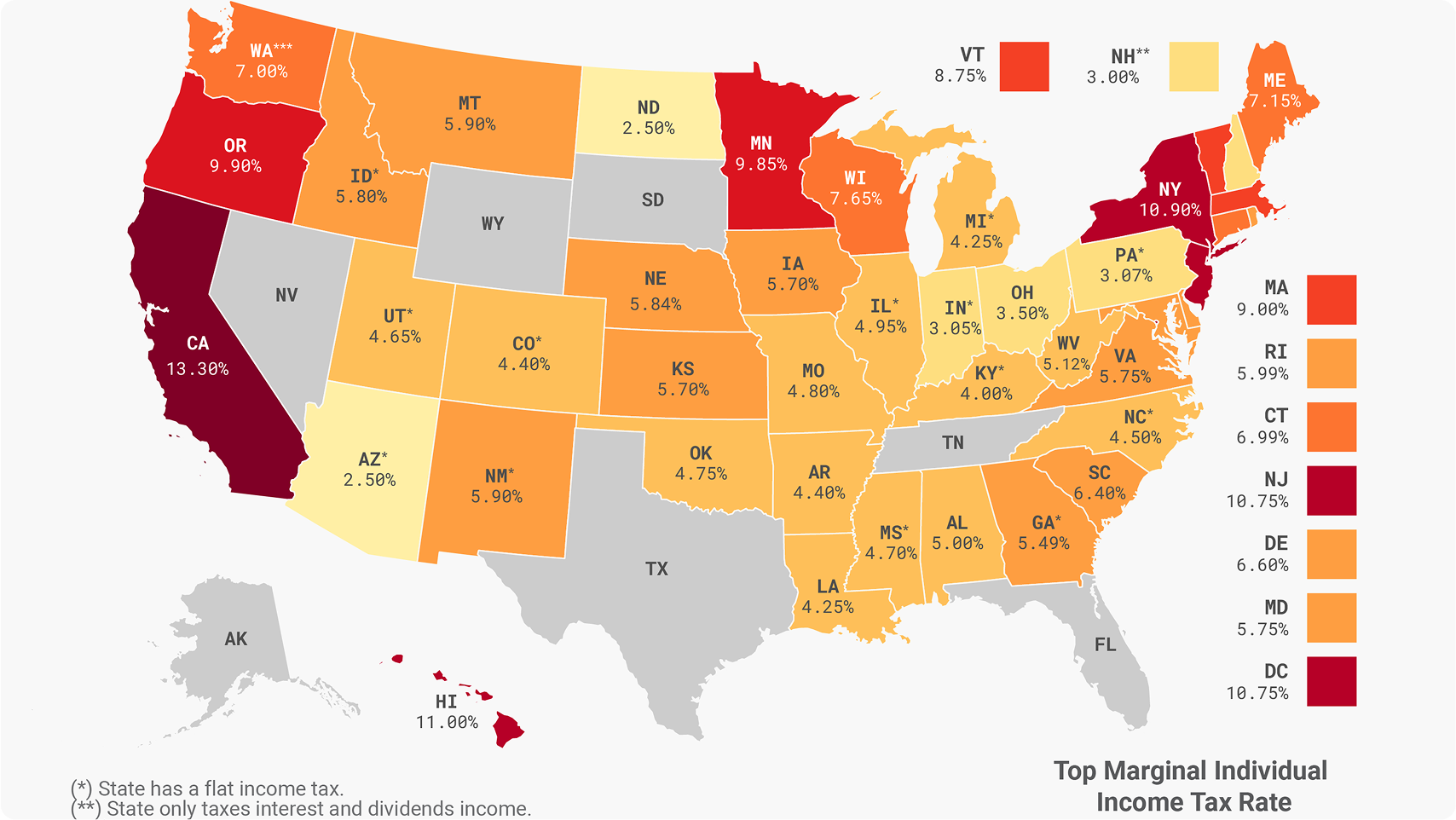If you’ve fallen behind on state income taxes, you’re not alone. Many Americans are surprised by unexpected tax bills. However, ignoring tax debt can lead to penalties and increased financial burdens. The best course of action is to educate yourself and take proactive steps.
State vs. Federal Tax Debt: Key Differences
State income tax rules can differ significantly from federal income tax laws. Here are some key differences:
- Collection Timeframes: Many states pursue tax debt longer than the IRS, which has a 10-year statute of limitations on collections.
- Hardship Considerations: Some states do not offer hardship relief like the IRS’s Offer in Compromise (OIC).
- Payment Flexibility: The IRS provides temporary or long-term relief, while some states require down payments for payment plans.
Which States Have No Income Tax?
If you’re moving or unsure about your tax obligations, these nine states do not levy a personal income tax:
- Alaska
- Florida
- Nevada
- New Hampshire (Only taxes interest and dividends)
- South Dakota
- Tennessee
- Texas
- Washington
- Wyoming
However, no-income-tax states may compensate with higher sales or property taxes.
Consequences of Unpaid State Income Tax
If you fail to pay state income tax, consequences can vary by state but often include:
- Accruing Interest & Penalties – The longer you wait, the more you owe.
- Tax Warrants & Liens – Some states place liens on property for unpaid taxes.
- Wage Garnishment – Some states, like Indiana, garnish wages for debts over $5,000.
- License Suspension – In certain states, unpaid tax debt can result in a suspended driver’s license.
Steps to Take if You Owe State Income Tax
If you know you owe, don’t panic. Follow these steps to resolve your tax debt:
- Gather Financial Records
- Keep all state tax notices and letters in a safe place.
- Review past W-2s, 1099s, and tax returns.
- Contact Your State’s Department of Revenue
Each state has its own process for handling tax debt. Visit your state’s Department of Revenue website to explore payment plans or settlement options. - Explore Payment Plans or Relief Programs
- Some states, like Colorado, offer installment agreements but impose penalties until fully paid.
- Idaho provides an Offer in Compromise (OIC) for hardship cases.
- Seek Professional Assistance
Low-income taxpayer clinics or tax professionals can help negotiate payment plans and explore relief options.
How to Stay on Top of State Income Taxes
- Track Your Obligations: Stay informed about your state’s tax laws.
- File On Time: Late filings often result in higher penalties.
- Set Up Estimated Payments: If you’re self-employed, paying quarterly taxes can help prevent future tax debt.
Conclusion
Falling behind on state income taxes can be overwhelming, but taking immediate action can prevent serious financial consequences. Whether you qualify for payment plans, hardship relief, or tax settlements, staying informed and proactive is the best way to manage tax debt effectively.




























